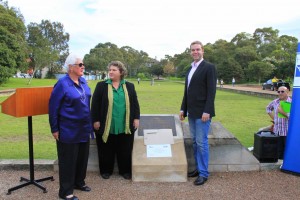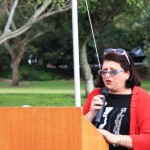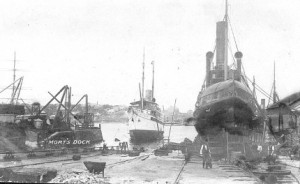On Sunday 22nd May 2011, a dedicated crowd gathered at Mort’s Park to commemorate the listing of Mort’s Dock on the NSW State Heritage Register.
Members of the Balmain Association, Heritage planners, Councillors, local residents and Member for Balmain: Jamie Parker, incoming Leichhardt Mayor Cr Porteous and Gabrielle Kibble of the Heritage Council of NSW were all present for this significant event. Sarah Ward, Maritime Archaeologist Office of Environment and Heritage for the NSW Department nominated the site for the Heritage register and opened the event acknowledging that the listing was a significant event for the people of Balmain and would have made Nick Origlass and Issy Wyner proud. It celebrates the social and cultural significance of the site and will help protect Mort’s Bay Park, in years to come.
Speeches made by the outgoing mayor and other guest speakers alike commemorated the longtime efforts of the Balmain Association and resident action groups who have worked so hard over the years to improve and protect Balmain’s working harbour.

Gabrielle Kibble: Heritage Council of NSW, Mayor of Leichhardt, Rochelle Porteous, Member for Balmain, Jamie Parker
History: Balmain’s Mort’ Dock named after Thomas Mort, was the first Dry dock of it’s size, opening in 1855 one year before Cockatoo island. It was the largest shipyard and engineering workshop, and the colony’s largest private enterprise. Also home of the Ship Painters and Dockers union which was established on site in 1872 and instrumental in the creation of what was later become the Australian Labour Party in 1891.




